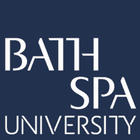About Bsc (hons) Food With Nutrition in Bath Spa University
The food we eat affects our health – how we feel today, tomorrow, and in the future. On this course, you’ll explore the complexities of the food chain, the needs and demands of consumers, and the controls that exist to ensure the food we eat is nutritious and safe.
Our graduates are in great demand in the food industry, consumer organisations and enforcement agencies. The food and drink industry is the largest manufacturing sector in the UK, employing around 400,000 people. It’s responsible for providing safe, nutritious and desirable food while facing the long-term challenge of feeding a growing population.
The course focuses on the food chain and issues that are important to consumers, such as nutrition and safety. We’ll equip you for professional life, with skills that will make you attractive to employers.
We offer a supportive, close-knit working environment. Class sizes are small. Staff and students are on first name terms, and you’ll be assigned a personal tutor from day one.
You’ll graduate with:
- A deep understanding of the impact of food provision
- An understanding of the role of nutrition on health
- Familiarity with the scientific principles and laboratory techniques used in the examination and analysis of food
- An informed attitude to ethical and environmental concerns associated with food production.
Careers
Employers such as Oasis Foods, Kerry Foods, Leatherhead Food Research, Coldwater Seafoods and Ferndale Foods have recruited graduates from this course.
Students have gone into roles including:
- Food Development Technologist
- Research Technician
- Assistant Scientific Officer
- Nutritionist
- Product Developer
- Quality Controller
- Teacher
Academic qualification equivalents
- Higher Secondary School Certificate/Indian School Certificate (standard XII) from the following boards CBSE/CISCE/WBCHSEB, with 65%, including grade C in at least five subjects.
English language requirements (one of the below):
- IELTS:Academic 6.0 overall This must include a minimum of 5.5 in Listening, Speaking, Reading and Writing.
- TOEFL iBT: A total of 72, to include a minimum 18 in Reading, 17 in Listening, 20 in Speaking, and 17 in Writing.
- PTE: This must include a minimum of 51 in Listening, Speaking, Reading and Writing.
Bath Spa University Highlights
| Type |
Public |
| Campus Setting |
Urban |
| Tuition Fees for International Students (full-time degrees in 2020-2021) |
13,700 GBP - 15,300 GBP (varies with the courses) |
| Campus Housing Capacity |
25% |
| Student Retention Rate |
89% |
| Scholarship Availability |
Yes |
| Applications Accepted |
Online |
| Work-Study |
Available |
| Intake Type |
Yearly |
| Mode of Program |
Full time and part-time |
Bath Spa University Average Tuition Fees And Other Expenses
International students joining the Bath Spa University are required to pay 70% of the tuition fees on or before arrival and commencement of the course. All payments should be made in £ sterling and the easiest way to make a payment is via Flywire. However, the payment can also be made through credit/debit card.
International students should open a UK bank account as soon as possible after arrival.
The estimated cost of attendance depends on several factors like the program applied for, tuition, books, fees, housing, dining, and personal items.
| Expenses In GBP |
Undergraduate (per annum) |
Graduate (per annum) |
| Tuition Fee for International Students (full-time courses) |
13,700- 15,300 (varies with the field of study chosen) |
13,700- 15,300 (varies with the field of study chosen) |
| Career and Professional Development Fees |
145 |
145 |
| Housing and Rooms |
8,412 |
8,412 |
| Health Insurance |
150 |
150 |
| Books and Supplies |
500 |
500 |
| Meals |
3,225 |
3,225 |
| Personal Expenses |
792 |
792 |
